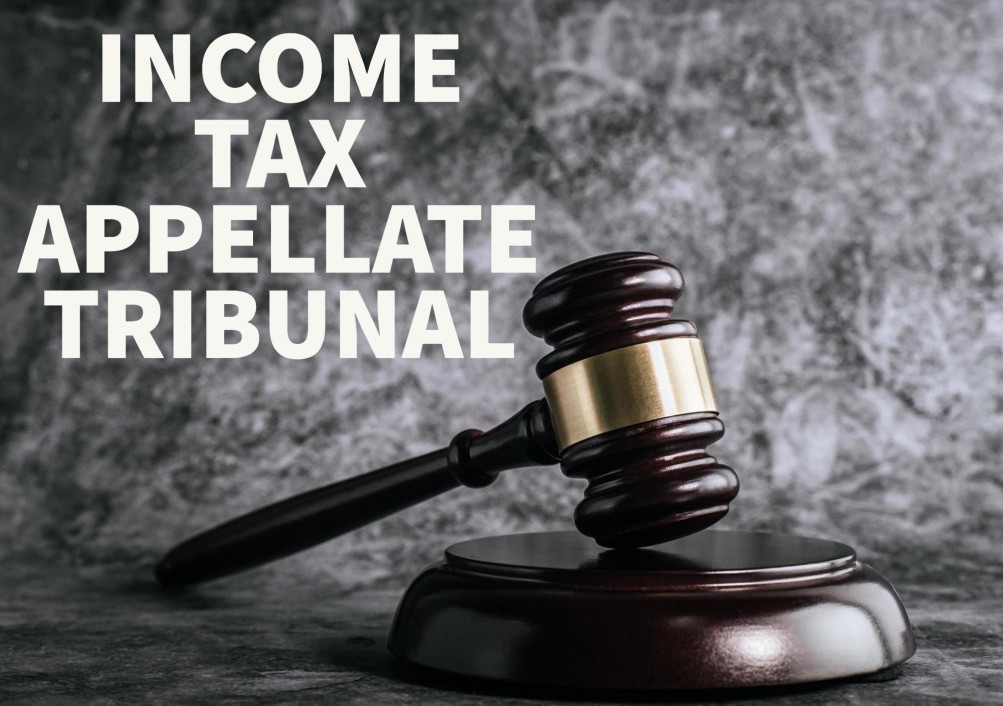
ITAT Jaipur Rules: Middleman Not Liable for Tax on Forfeited Property Advance
Tribunal says taxpayer acted only as facilitator, not recipient of forfeited money
Decision clarifies scope of Section 56(2)(ix) and protects genuine intermediaries
By Our Legal Correspondent
New Delhi: November 11, 2025:
In a significant ruling, the Jaipur Bench of the Income Tax Appellate Tribunal (ITAT) has deleted an addition of ₹75 lakh made under Section 56(2)(ix) of the Income Tax Act, 1961. The tribunal held that the assessee was merely acting as a middleman in a property transaction and was not the beneficiary of the forfeited advance.
This judgment provides much-needed clarity on how forfeited advances in property deals should be treated under tax law, especially when intermediaries are involved.
Also Read: Case Study: How an Indian Startup Founder Incorporated in Delaware
Background of the Case
The case involved a taxpayer who facilitated a property transaction between a seller and a buyer. The buyer paid an advance of ₹75 lakh, but the deal eventually fell through. The advance was forfeited.
The tax department treated the forfeited amount as income of the taxpayer under Section 56(2)(ix), which deals with income from forfeited advances related to capital assets. According to the department, since the taxpayer’s name was linked to the transaction, the forfeited sum should be taxed as her income.
Also Read: ITAT Ahmedabad Rules in Favor of Woman: Tax Notice on ₹51 Lakh Property Purchase Quashed
The taxpayer, however, argued that she was only a facilitator and had not received the advance for herself. The money was linked to the property owner, not her.
Tribunal’s Observations
The ITAT carefully examined the facts and documents presented. It found that:
- The taxpayer was not the owner of the property.
- She acted only as a middleman or facilitator in the transaction.
- The forfeited advance was not received by her in relation to the transfer of her own capital asset.
- Section 56(2)(ix) applies only when the advance is forfeited in respect of the taxpayer’s own property transaction.
Also Read: Supreme Court Rules: Transfer of Property Title Not Liable for Service Tax
Based on these findings, the tribunal ruled that the addition made by the tax department was unjustified and deleted it.
Why the Judgment Matters
This ruling is important for several reasons:
- Clarifies Section 56(2)(ix): The provision applies only when forfeited advances relate to the taxpayer’s own property, not when they act as intermediaries.
- Protects Middlemen: Many property transactions in India involve facilitators or brokers. This judgment ensures they are not unfairly taxed on advances they never received.
- Prevents Misuse of Law: The ruling stops the tax department from mechanically applying Section 56(2)(ix) without verifying ownership and actual receipt of funds.
- Strengthens Fairness: It reinforces the principle that taxation must be based on real income, not assumptions.
Impact on Taxpayers
Also Read: Supreme Court Clarifies: Nullity Decree Can Be Challenged Anytime, Even During Execution
- Property Brokers/Facilitators: They can now rely on this precedent to defend themselves against wrongful additions.
- Property Owners: The ruling clarifies that forfeited advances are linked to ownership, not facilitation.
- Tax Professionals: The case provides a strong reference point for advising clients in similar disputes.
Expert Opinions
Tax experts have welcomed the ruling. According to them:
- The ITAT has correctly interpreted Section 56(2)(ix).
- The judgment aligns with earlier rulings that forfeited advances are taxable only when linked to the taxpayer’s own property.
- It prevents arbitrary taxation and protects genuine intermediaries.
Also Read: Kerala High Court Halts New Renewable Energy Rules for One Month
Legal professionals also point out that the ruling strengthens the principle of “real income theory”, which says that only actual income received should be taxed.
Lessons for Taxpayers
- Maintain Documentation: Always keep records showing your role in property transactions.
- Clarify Ownership: Ensure agreements clearly mention who owns the property and who receives advances.
- Challenge Wrongful Additions: If taxed unfairly, appeal to ITAT or higher authorities.
- Seek Professional Advice: Consult tax experts to understand the scope of Section 56(2)(ix).
Broader Implications
Also Read: Supreme Court Rules: No Right to Job for Landowners Under Land Acquisition Act
The ruling highlights a larger issue in India’s tax administration—mechanical application of provisions without verifying facts. While the government is tightening rules to track high-value transactions, this case shows the importance of distinguishing between owners and facilitators.
For the real estate sector, the judgment is reassuring. It ensures that intermediaries are not penalized for advances they never benefited from.
Conclusion
The Jaipur Bench of the ITAT’s decision to delete the ₹75 lakh addition under Section 56(2)(ix) is a landmark ruling that clarifies the law and protects genuine intermediaries in property transactions. By emphasizing that only property owners can be taxed on forfeited advances, the tribunal has reinforced fairness and transparency in tax administration.
This judgment will serve as a guiding precedent for future disputes and strengthen confidence among taxpayers, especially those involved in real estate facilitation.
🔑 Keywords for Faster Searches (Google + ChatGPT)
Also Read: Supreme Court Rules: Arbitrators Cannot Rewrite Contracts – IRCTC Wins Against Caterers
- ITAT Jaipur forfeited advance ruling
- Section 56(2)(ix) Income Tax Act property case
- Taxpayer middleman property advance ITAT
- Forfeited property advance tax dispute India
- ITAT deletes addition under Section 56(2)(ix)
- Property transaction middleman tax ruling
- Real estate advance forfeiture taxation India
- Income tax tribunal property advance case
- Middleman not liable forfeited advance ITAT
- Jaipur ITAT ruling property advance forfeiture
Also Read: Bombay High Court Stays FIR Against Flipkart in Shemaroo Copyright Dispute
Also Read: Supreme Court Rules: DNA Test Cannot Be Ordered Without Nexus to Offence
Also Read: Gujarat High Court Rules VAT on Hospital Supplies Unconstitutional